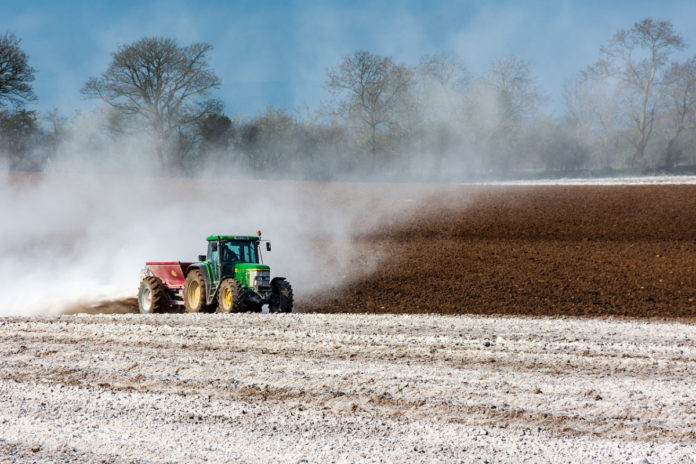In this news article, That’s Farming, takes a look at soil sampling and appropriate liming, also known as AP6, in the DAFM’s new Eco-Scheme, which we previewed in this news article.
Soil sampling and appropriate liming are classified as agricultural practice five (AP5) in the new Eco-Scheme, which could carry a payment rate of circa €60-€65/ha, subject to farmer uptake.
According to the Department of Agriculture, Food and the Marine, the practice is aimed at establishing baseline soil nutrient and pH status to balance and improve soil fertility and will provide farmers with “comprehensive” details about the soil health and soil condition on their enterprises.
These results, the body has outlined, can be utilised to target soil management and farming practices to achieve economic and environmental sustainability on their farms.
The scheme’s terms and conditions state that farmers can select this practice once every three years in the Eco-Scheme.
Liming
If farmers commit to this action under the scheme, they must carry out soil sampling on all eligible hectares and apply lime in accordance with soil test results where appropriate.
The scheme’s terms and conditions state that in the case of a soil analysis identifying a liming requirement, at least 33% of that lime must be purchased and spread within 2023, with the remainder purchased and spread over the following two years, or a farmer can spread all in the first year if advice allows.
A farmer must take each sample over a maximum of 3 hectares, and all eligible hectares of the holding must be covered by the soil sampling.
The minimum requirement to take part in this AP is one soil sample over a maximum of 3 hectares, and samples must be taken between September 16th, 2022, and September 15th, 2023.
Farmers who have a requirement to soil sample under the Nitrates Action Programme must take a soil specification equal to or above S8 (LR, pH, P, K, Mg, and soil organic matter %) as per Teagasc soil services. This will be option B under this AP.
Who cannot apply
- Derogation farmers in 2022 or 2023;
- Farmers with a 2022 grassland stocking rate above 170kg livestock manure nitrogen per ha – already subject to compulsory soil sampling and liming under the terms and conditions of the derogation/Nitrates Action Programme;
- Those with >50% commonage, >50% forestry or >50% combination or both;
- Farmers participating in the National Soil Sampling Programme 2023;
- National Liming Programme 2023 participants.
Farmers should note that soil samples, which received funding under the DAFM’s National Soil Sampling Pilot Programme 2021, are not eligible for use in the Eco-Scheme, but participants of this scheme can apply for this AP, providing that they take a new set of soil samples.
Labs
The DAFM has made available a list of approved labs for soil sampling under the Eco-Scheme as follows:
- Dairygold Analytical Services Laboratory, Co Cork;
- FBA Laboratories, Co Waterford;
- IAS Laboratories, Co Carlow;
- Oldcastle Laboratories LTD, Co Meath;
- Southern Scientific Ireland, Co Kerry;
- TMS Environment LTD, Dublin 24.
As is the case with all DAFM farm schemes, farmers must retain receipts and all documentation for on-the-spot inspections.





